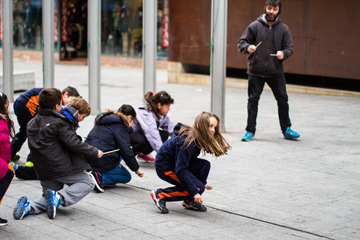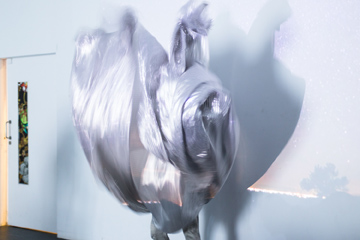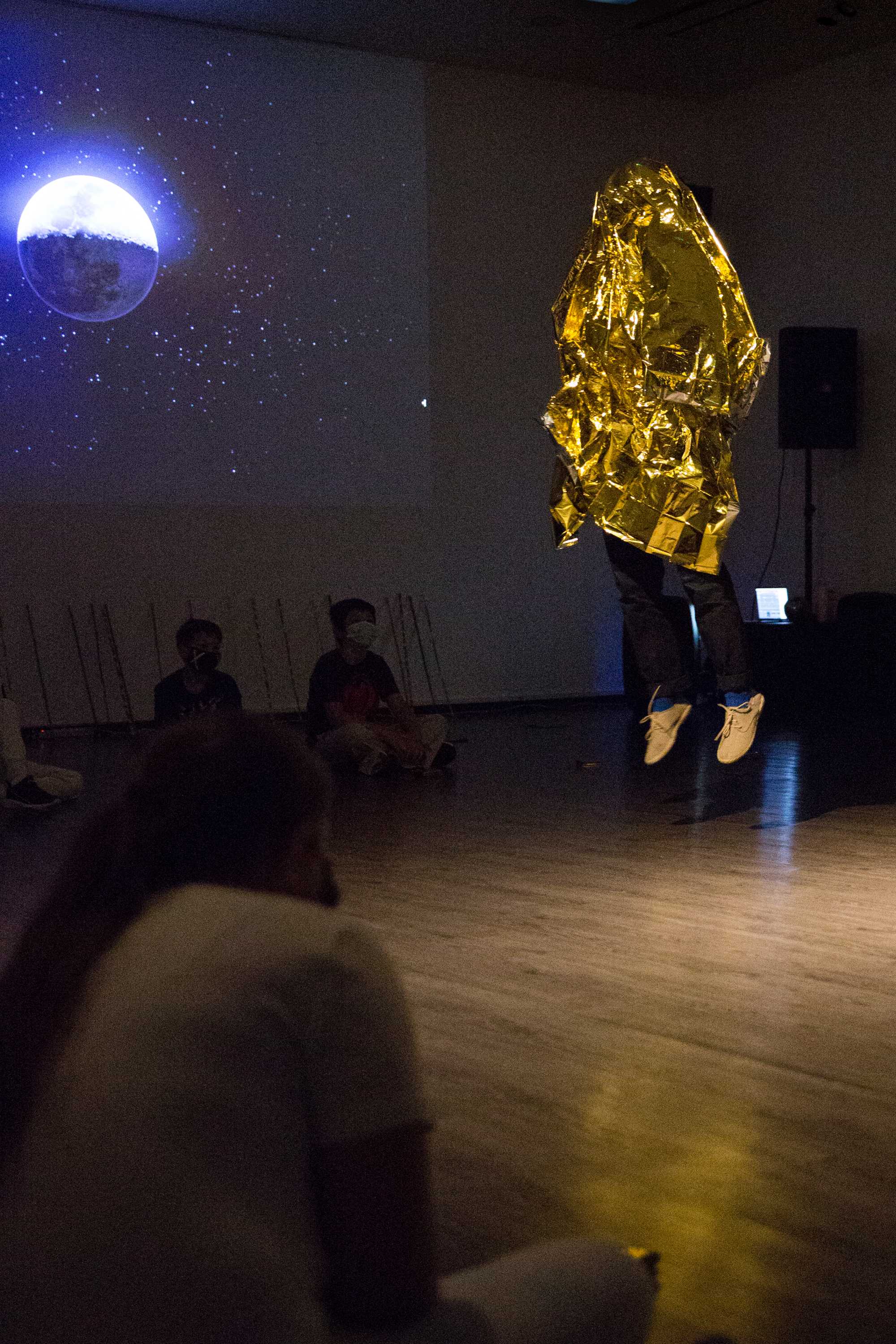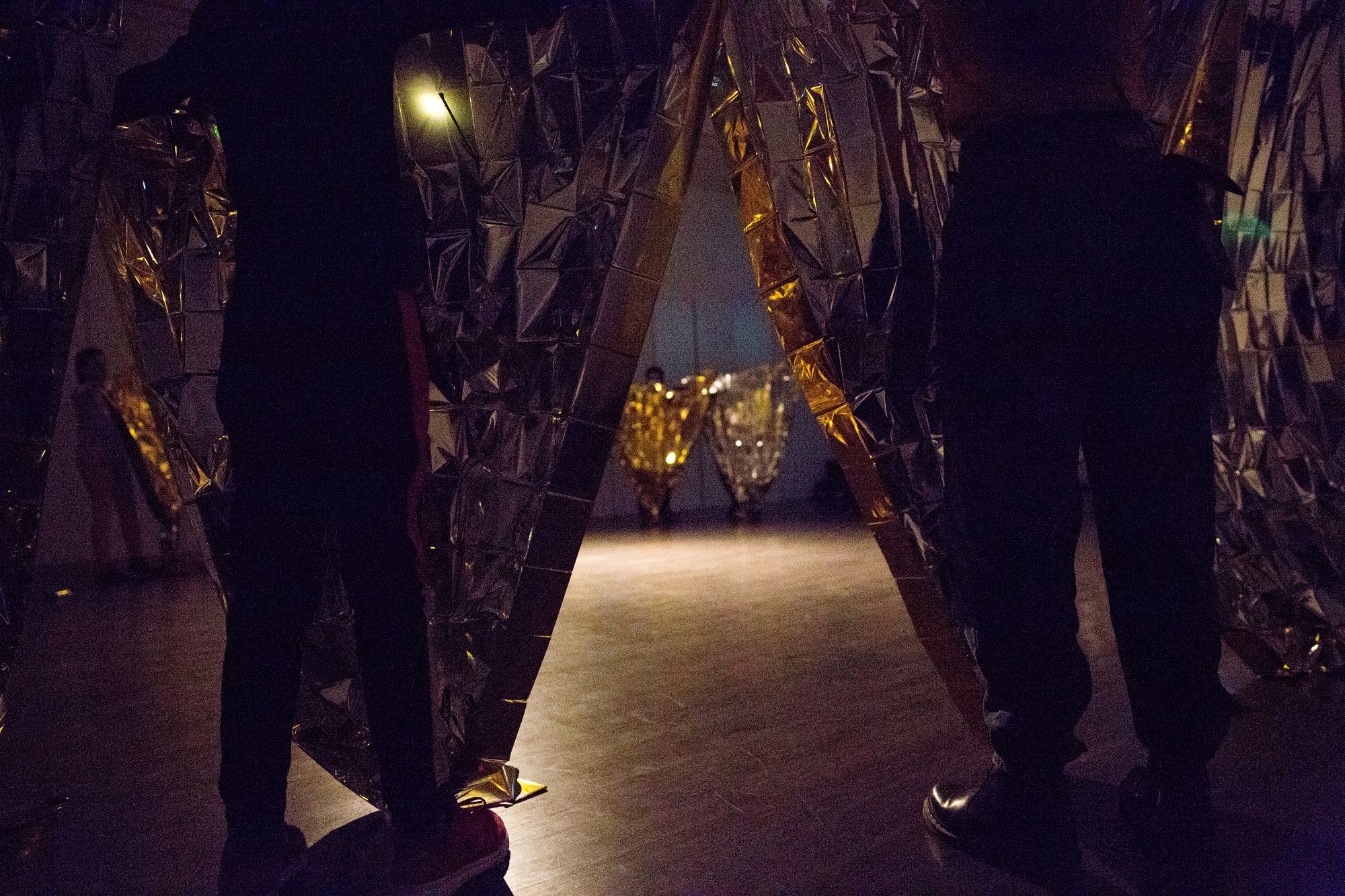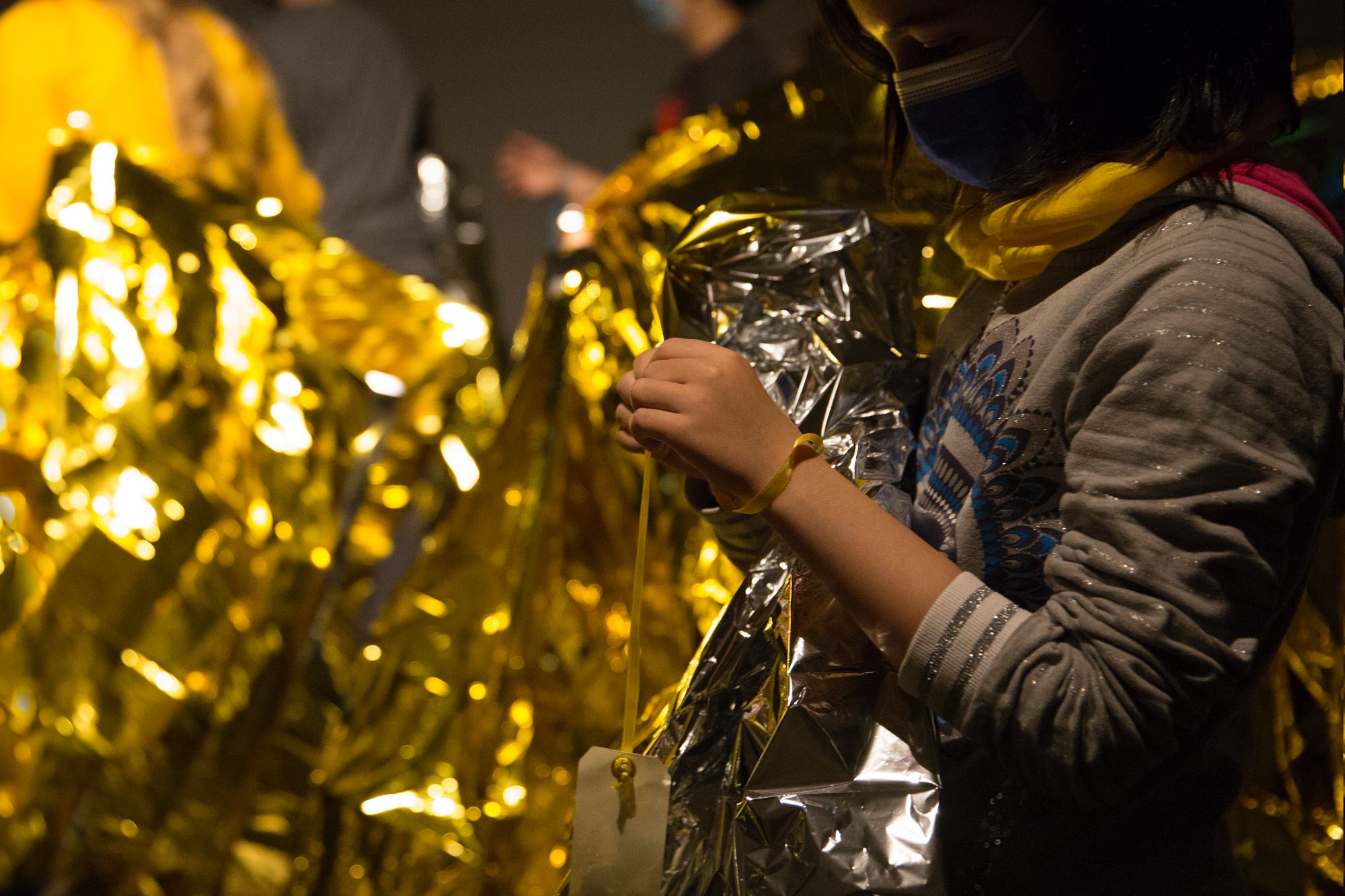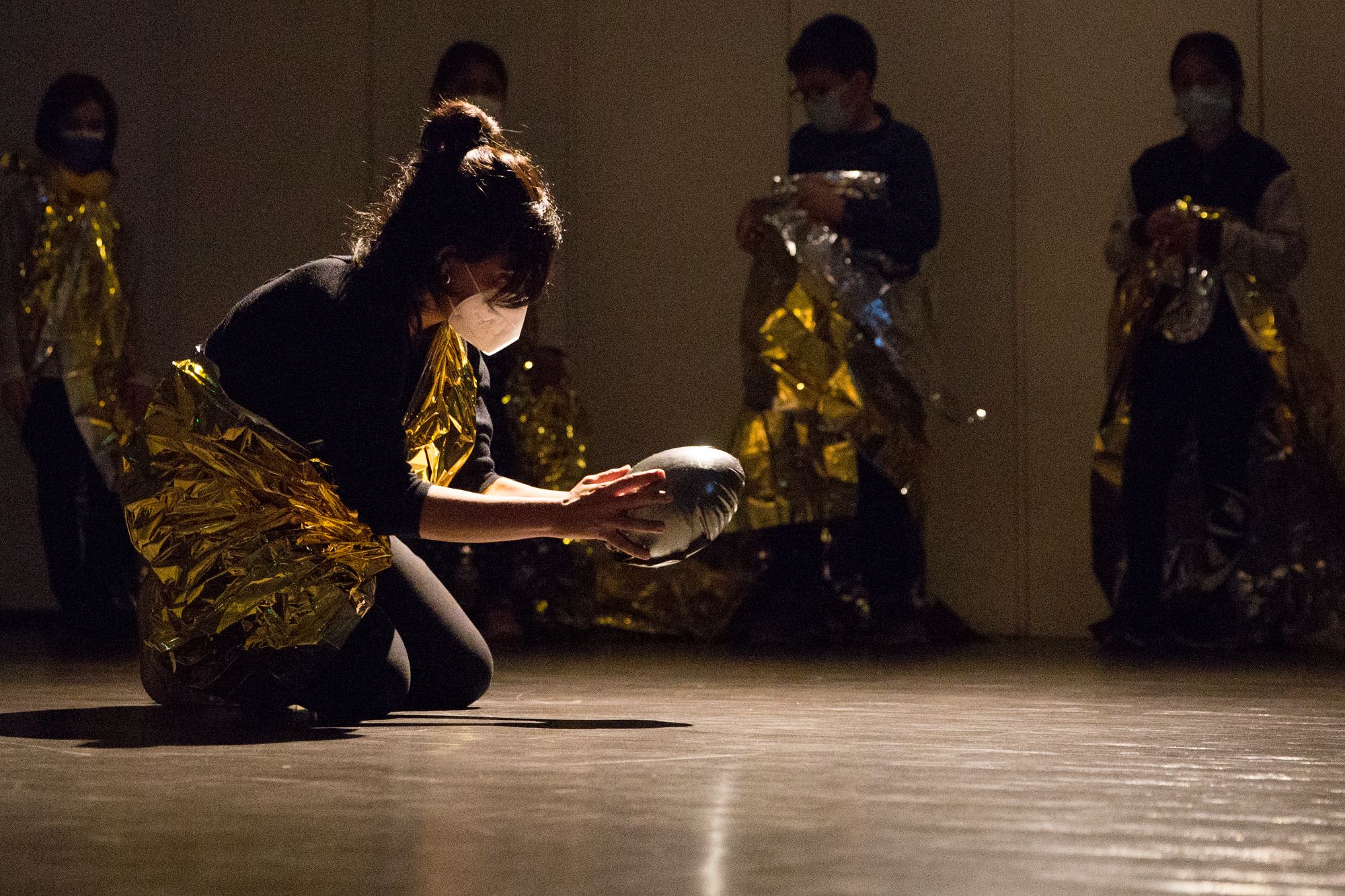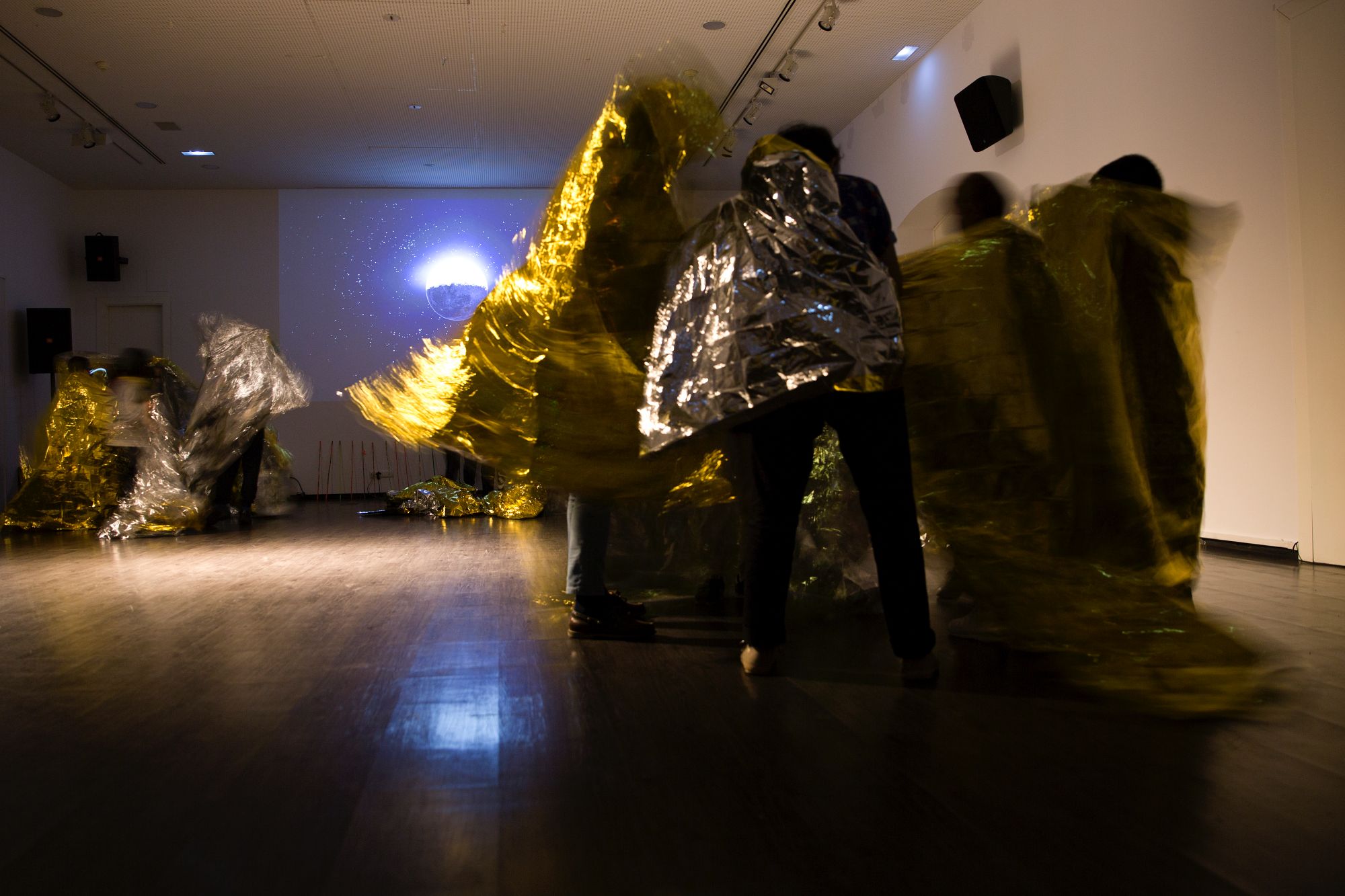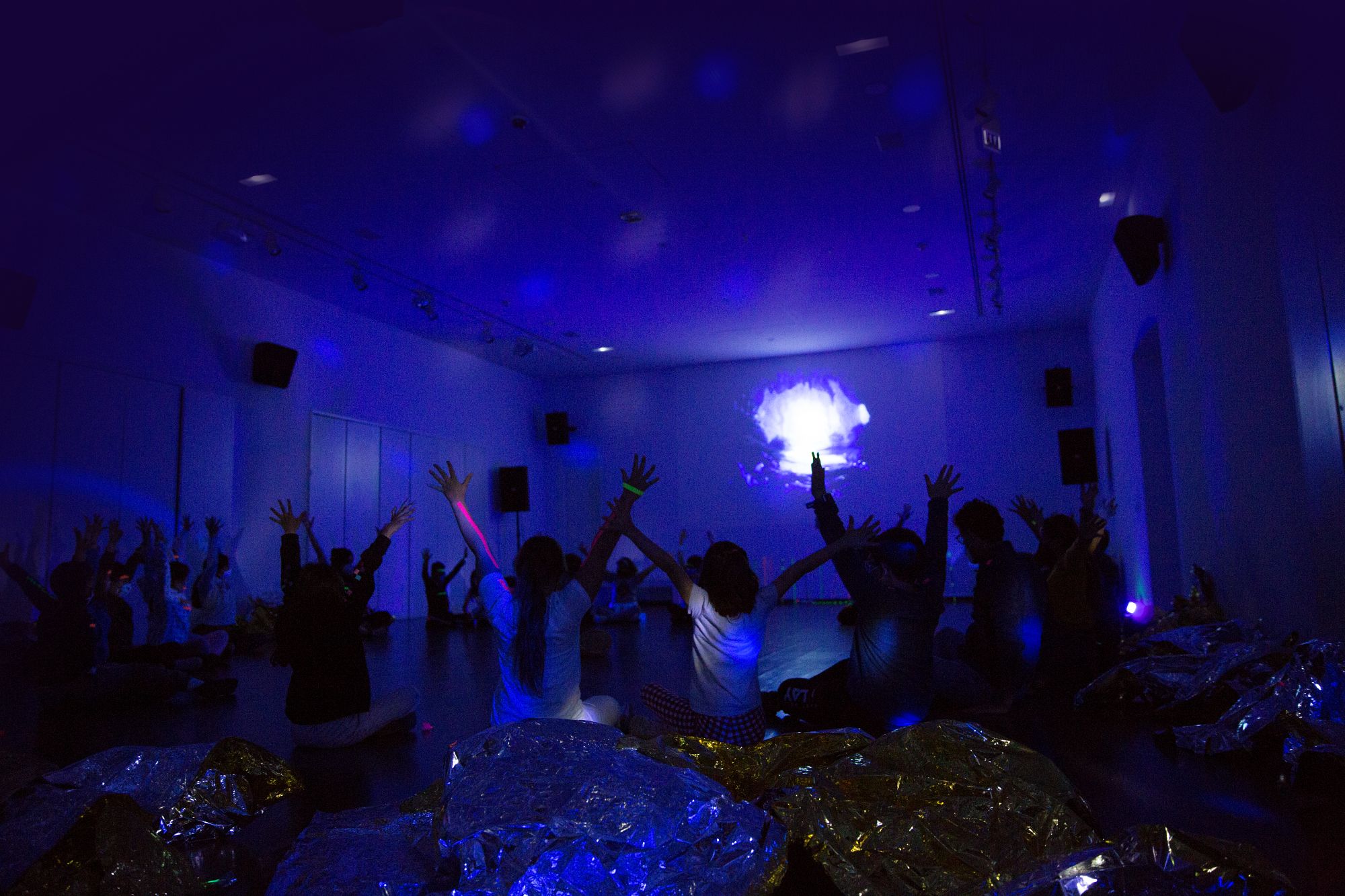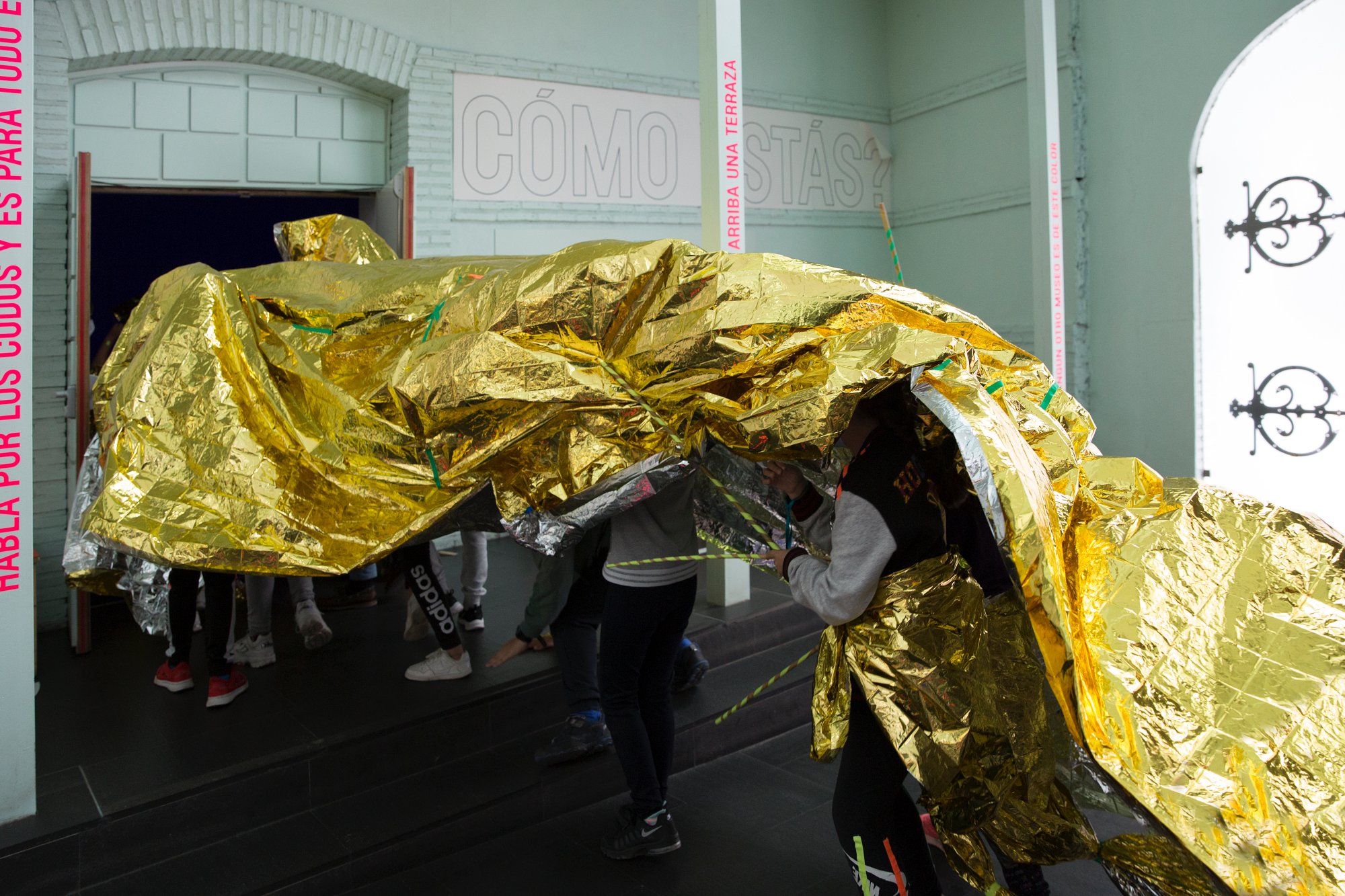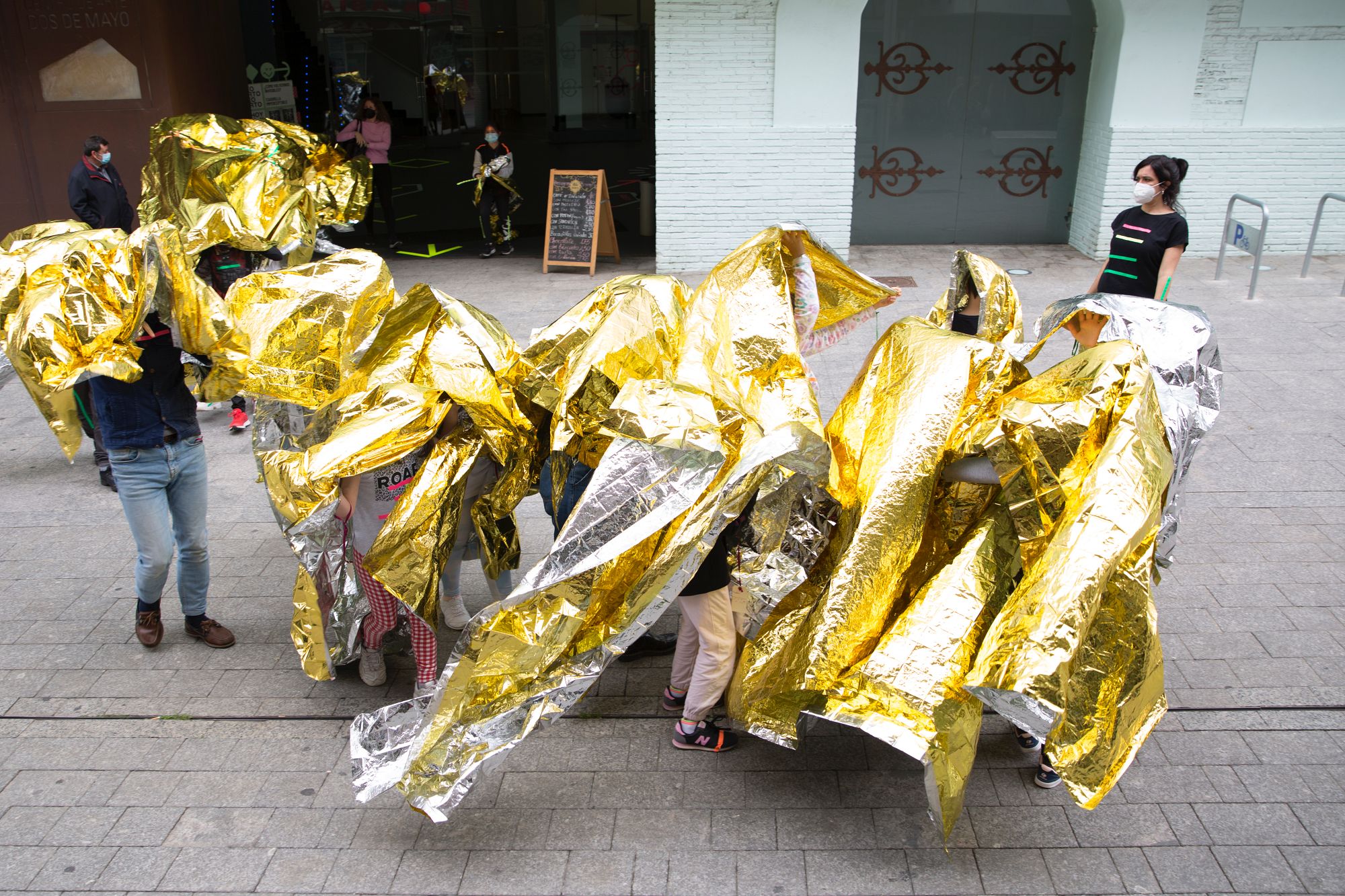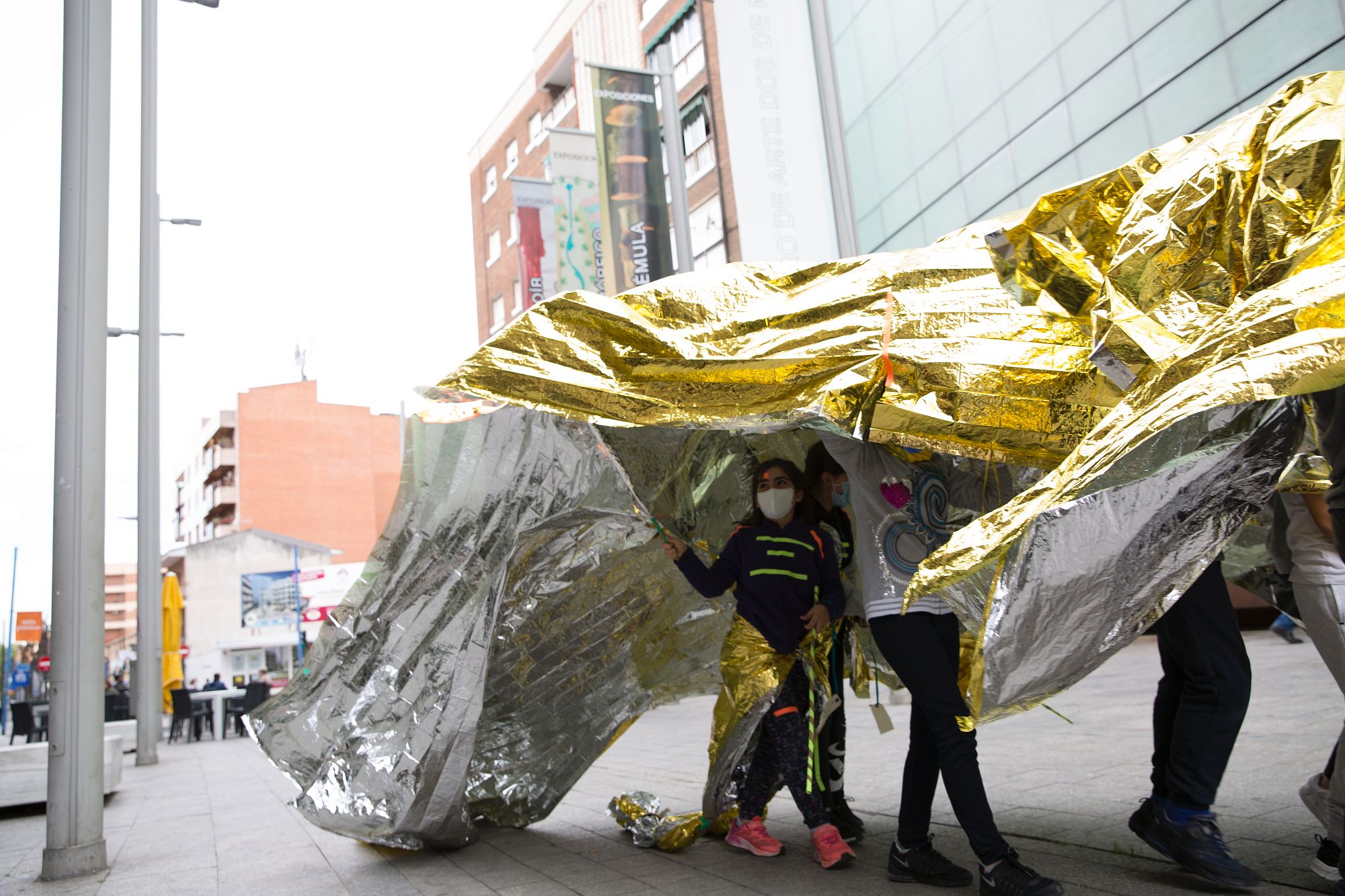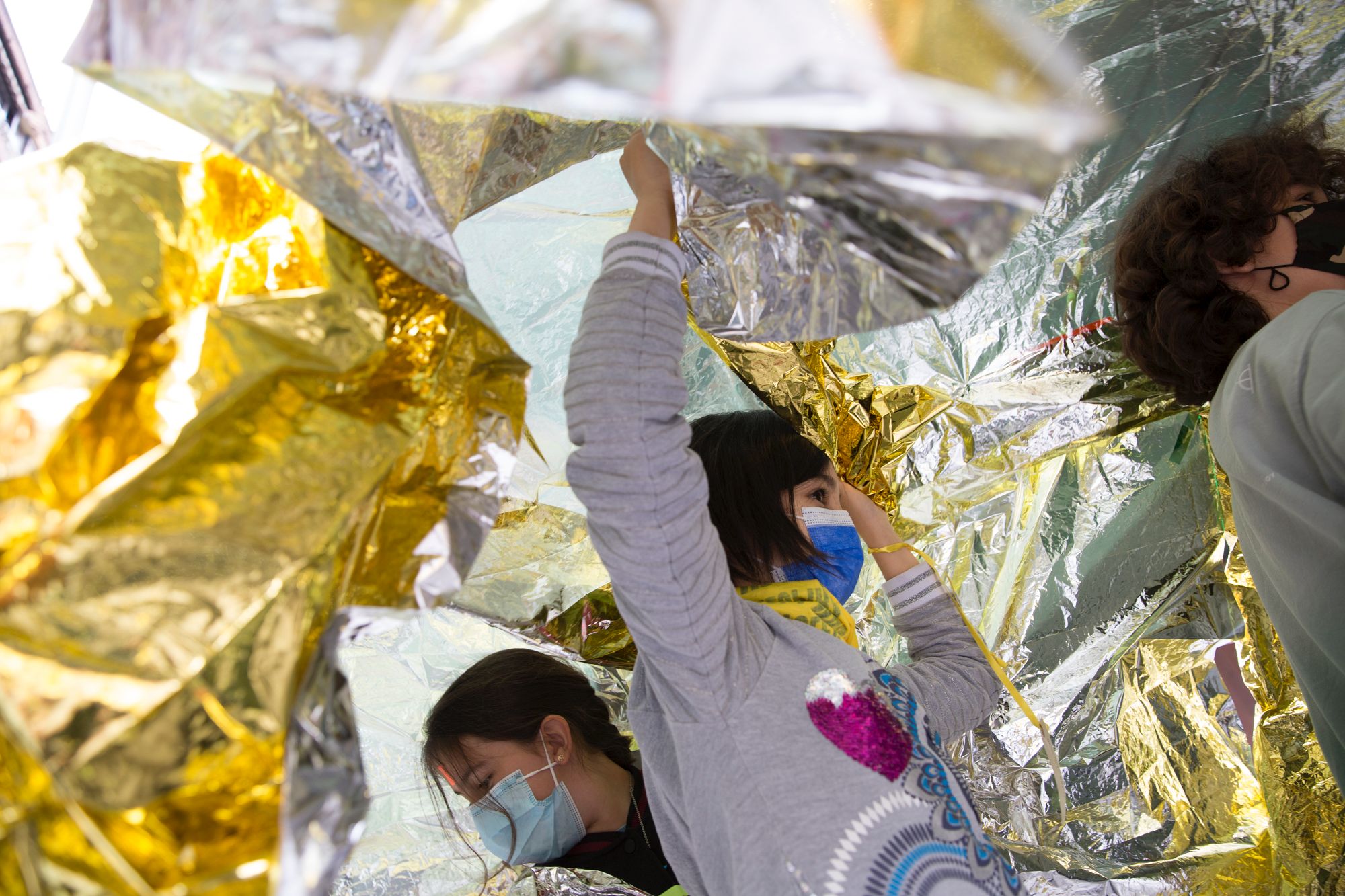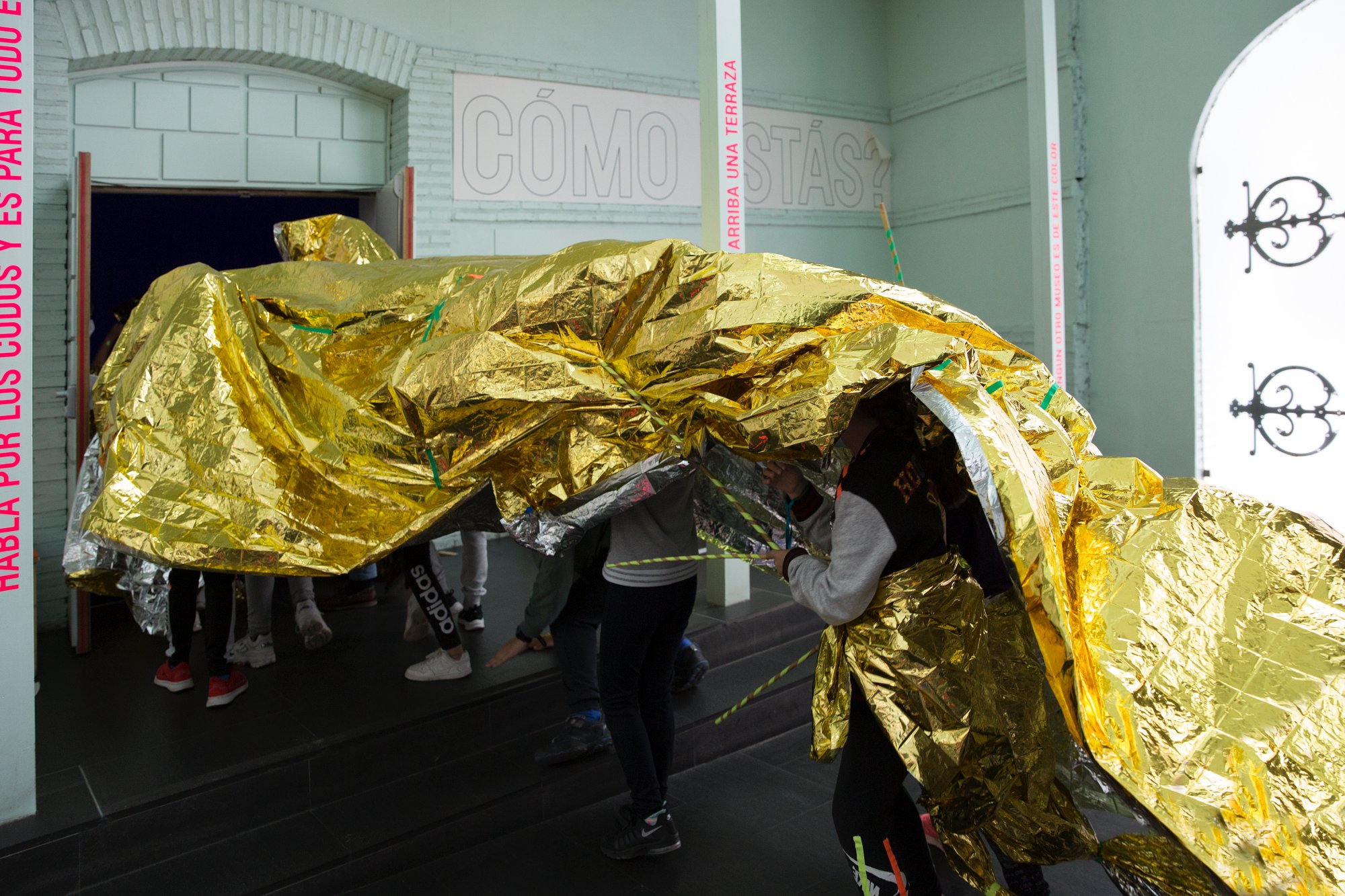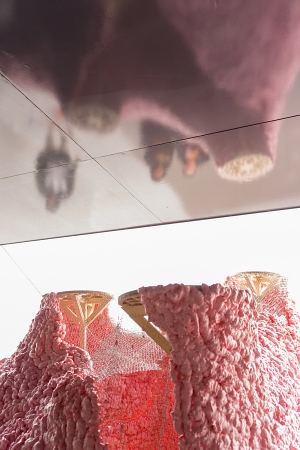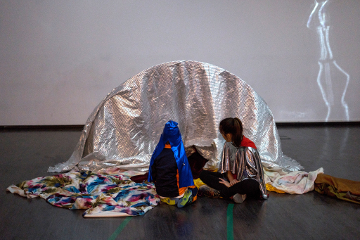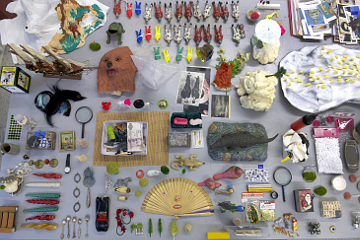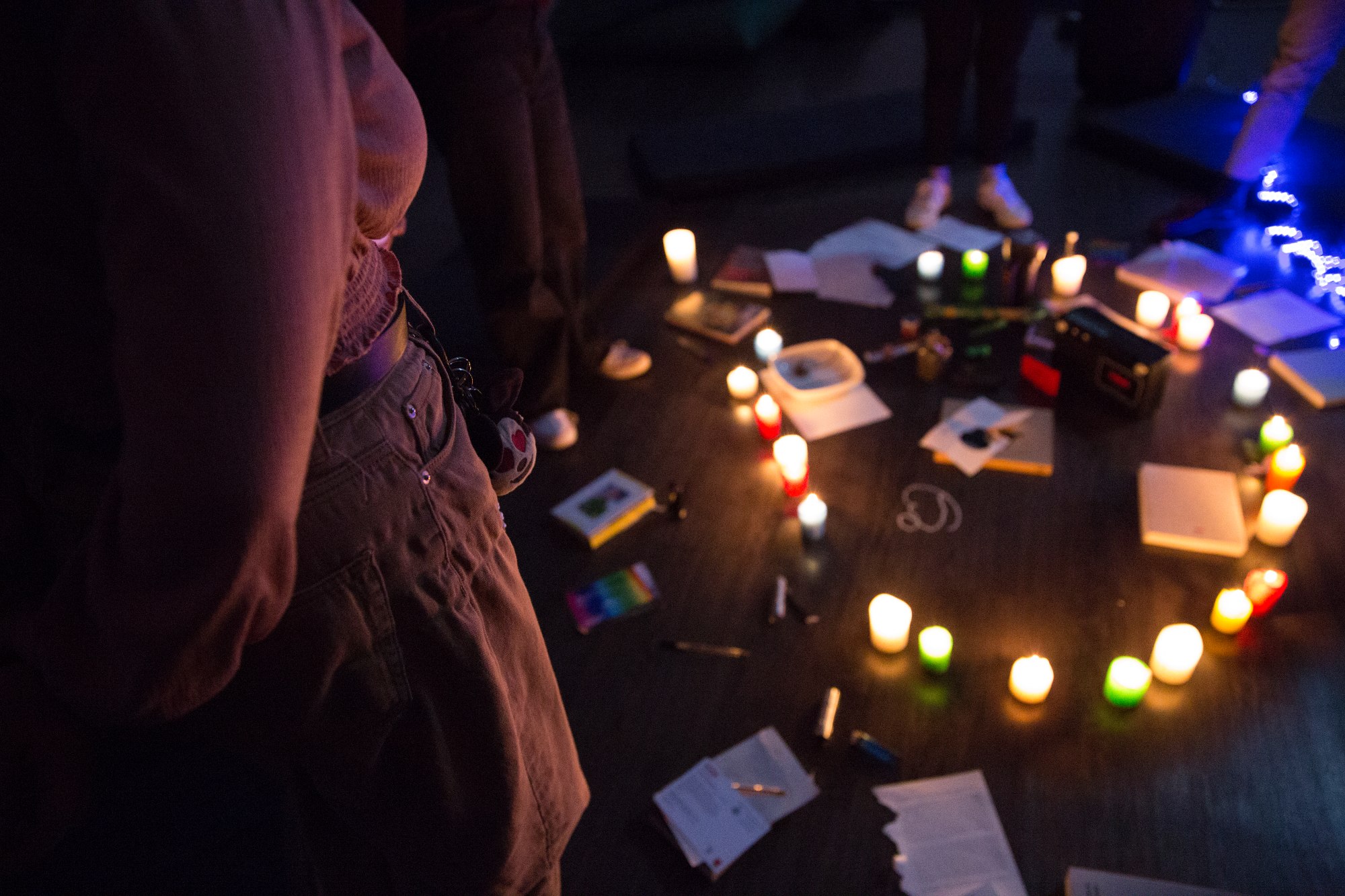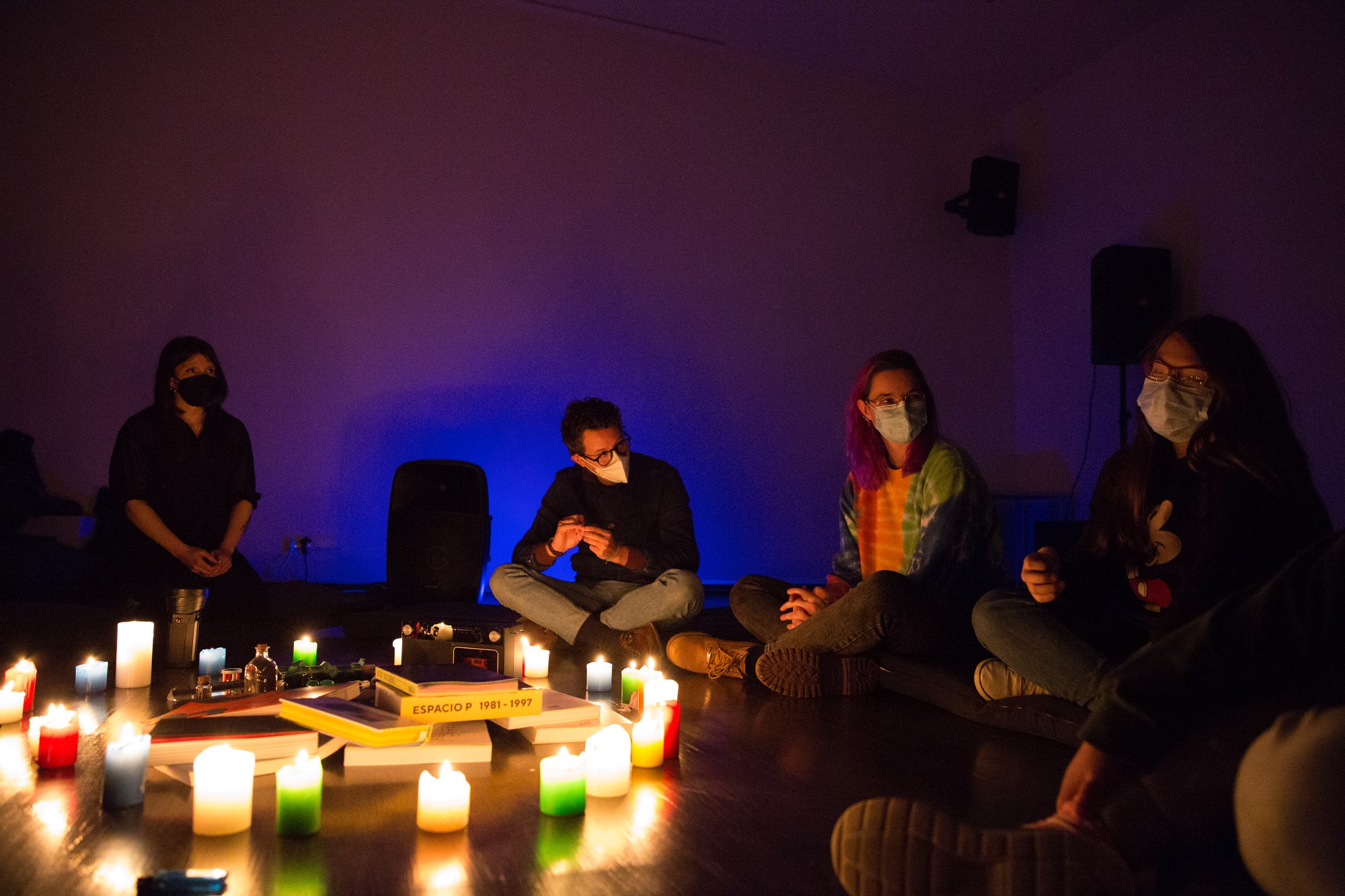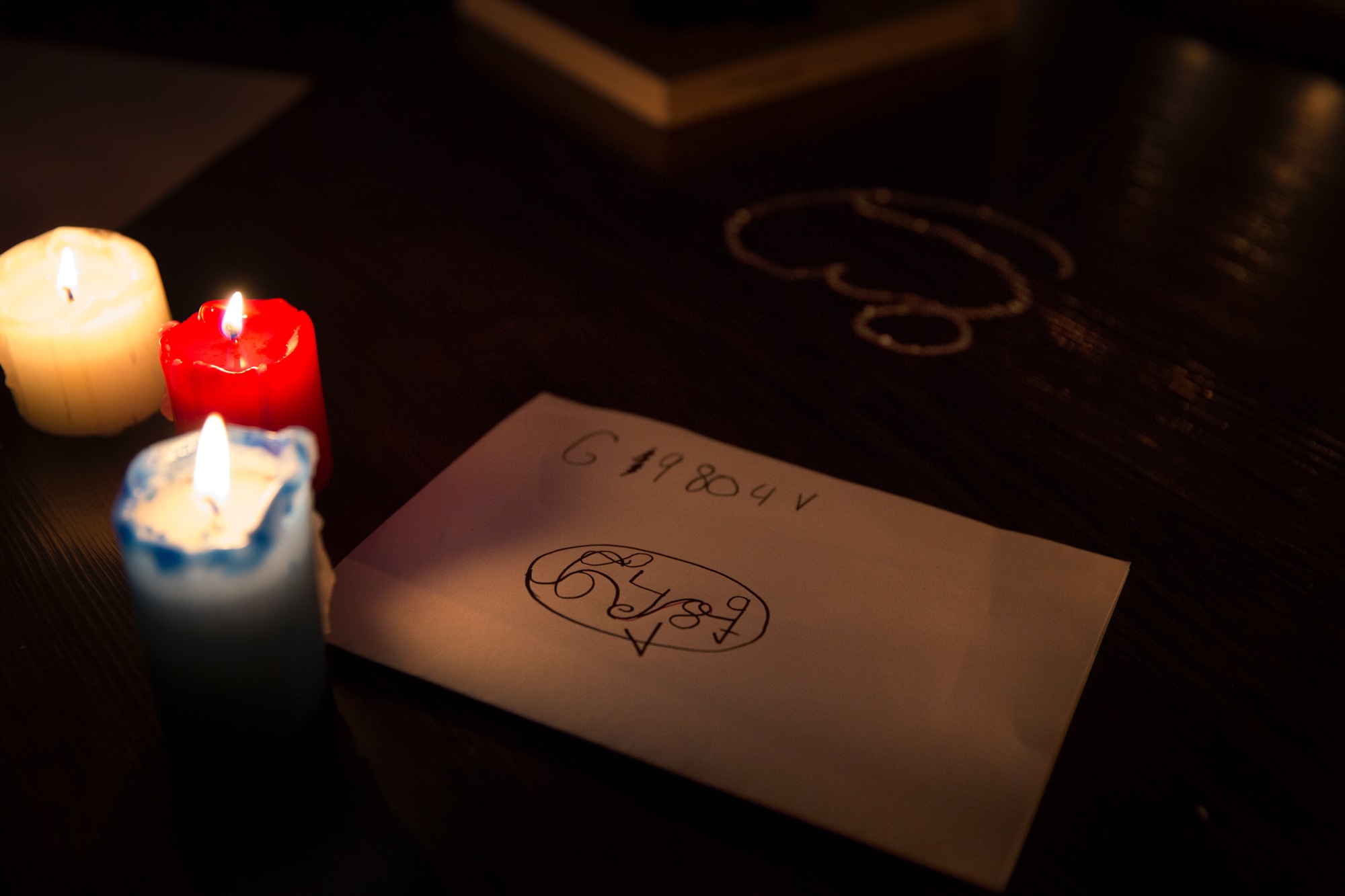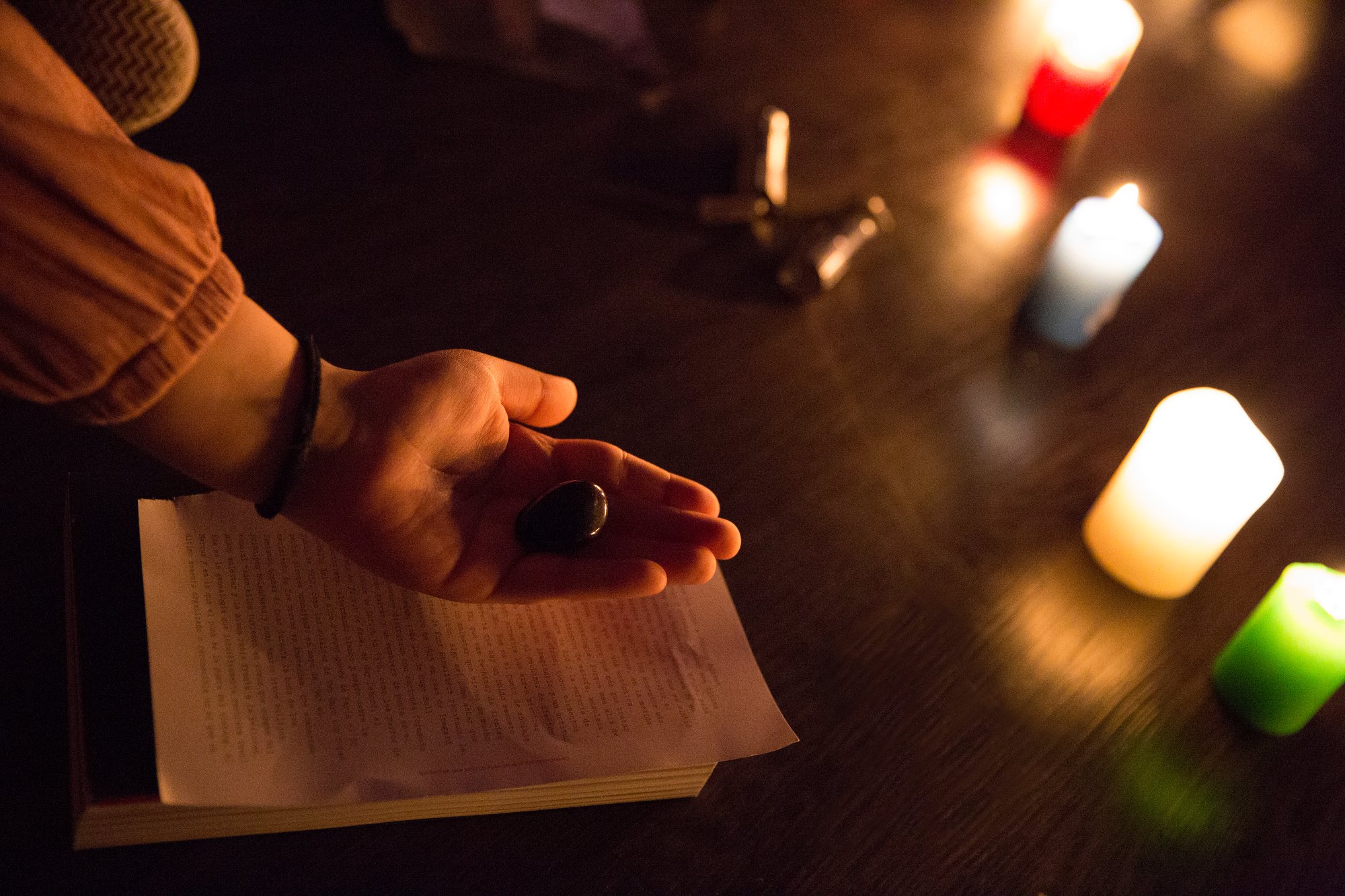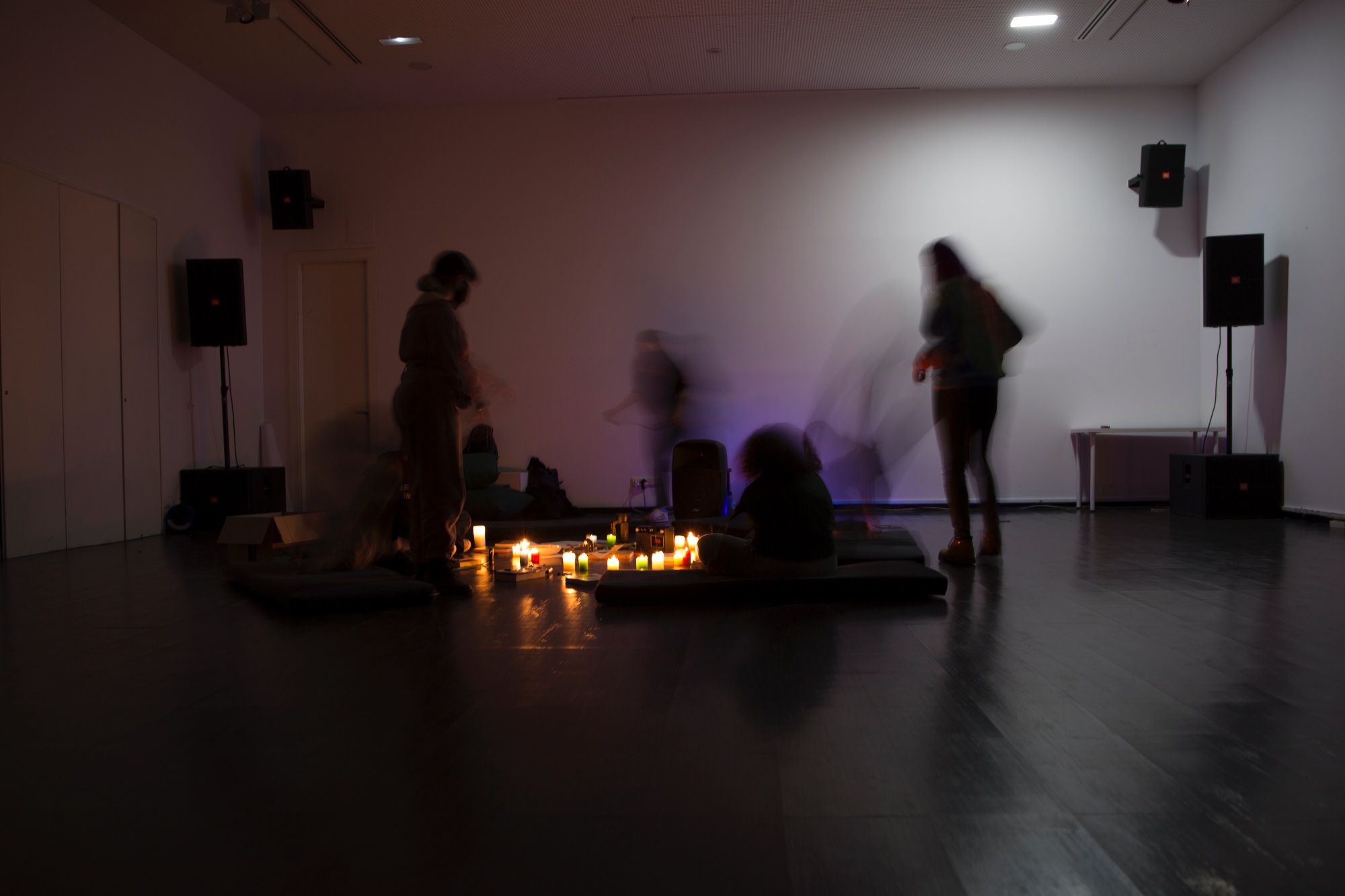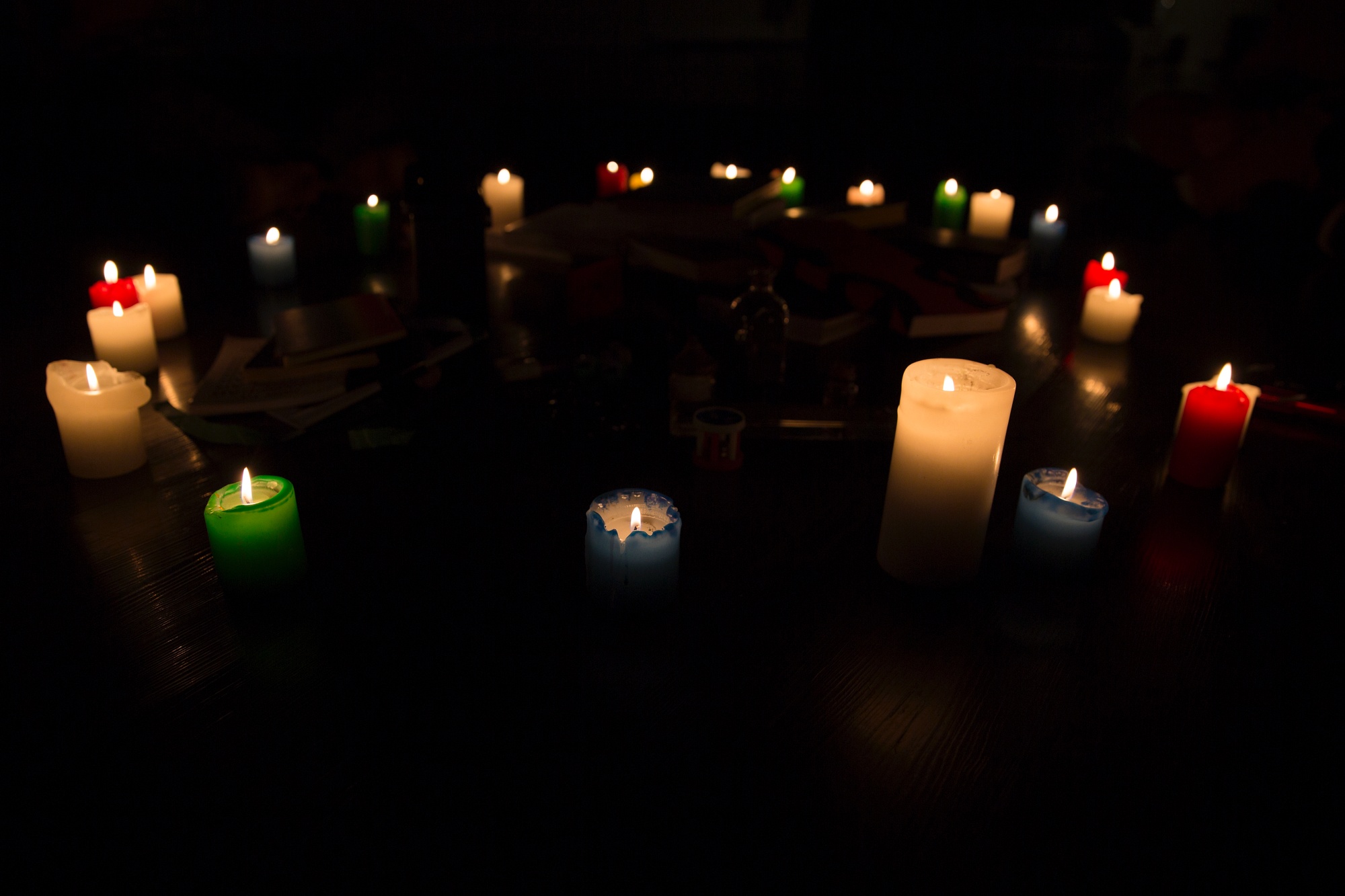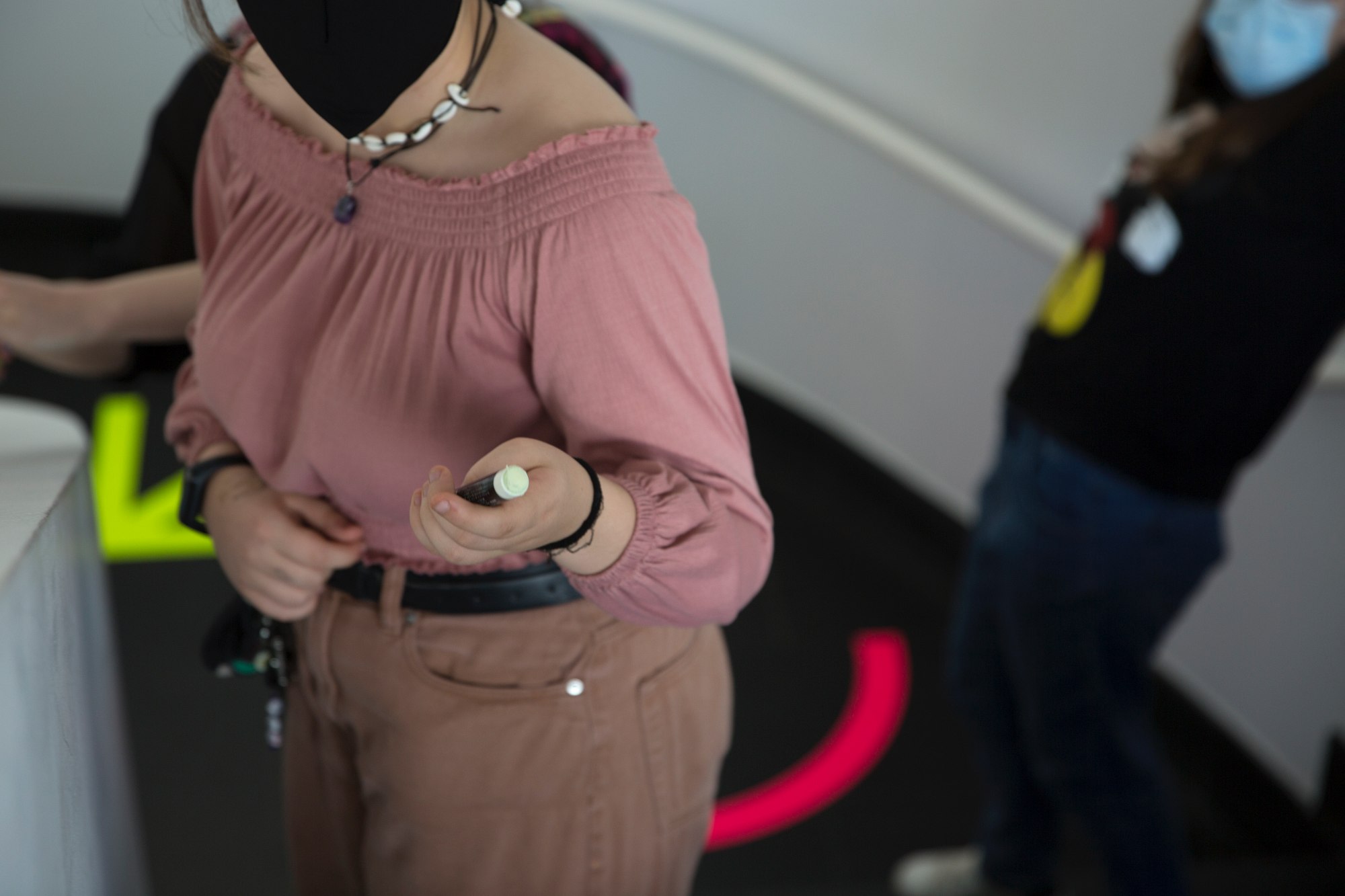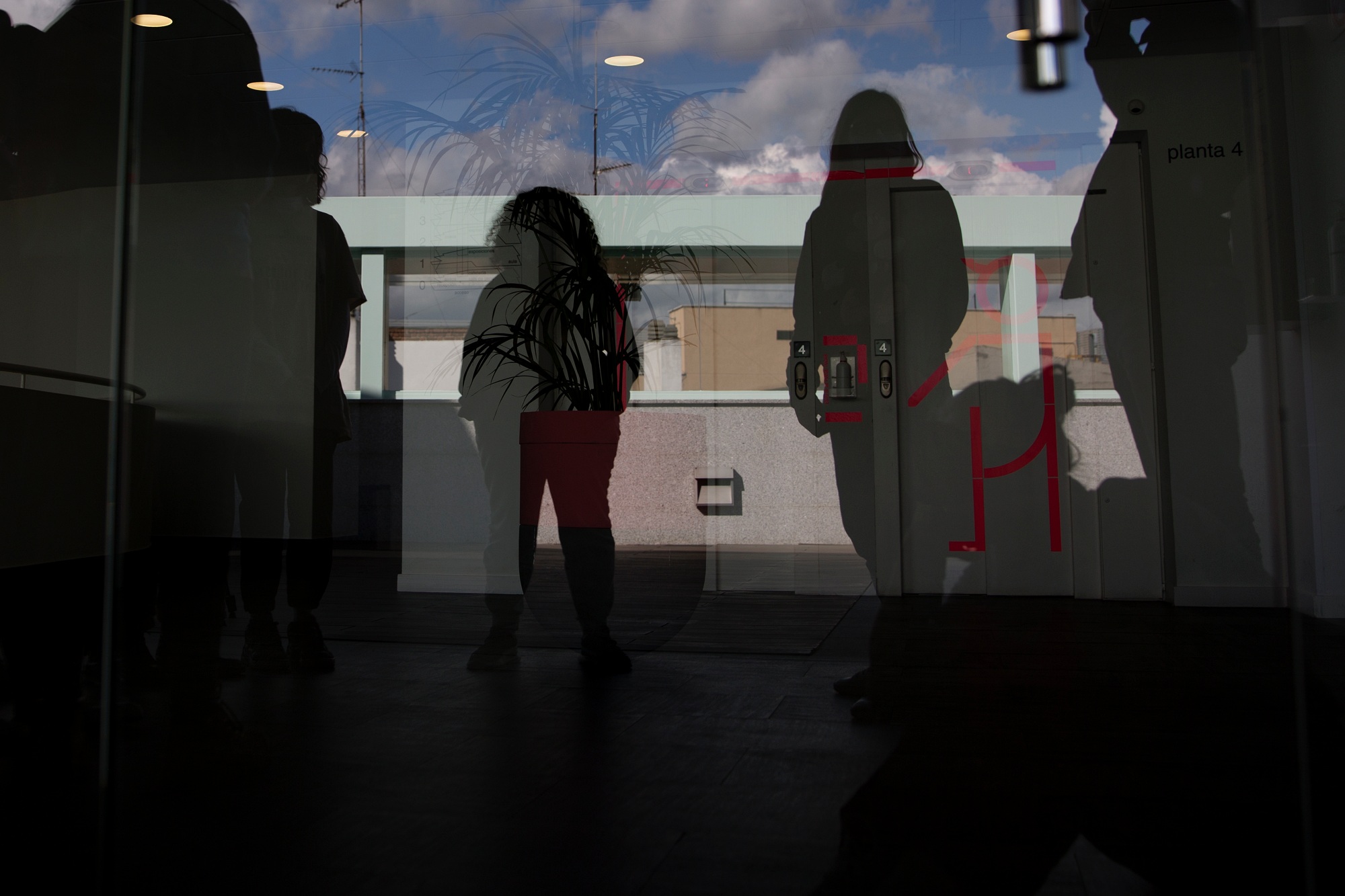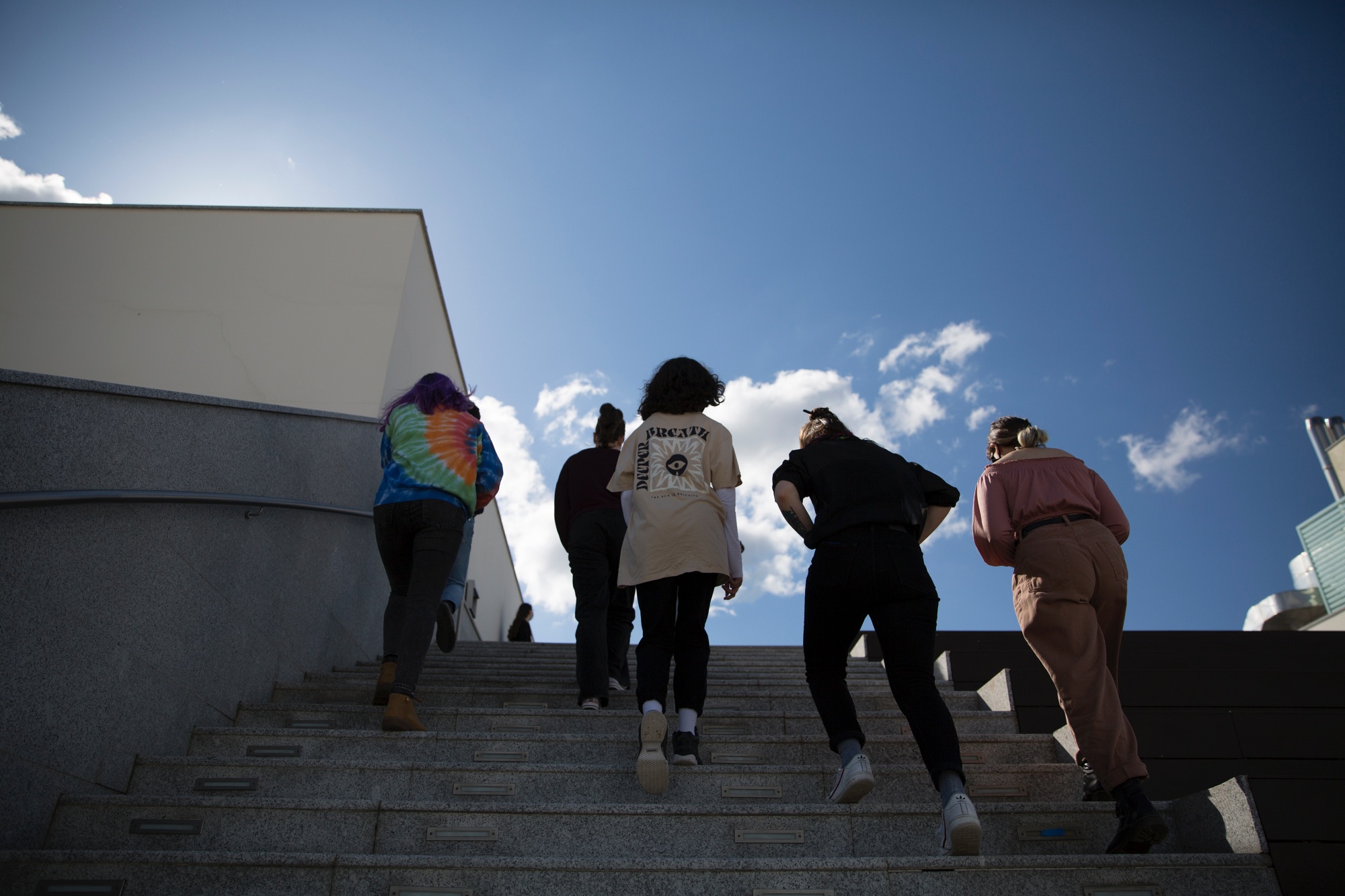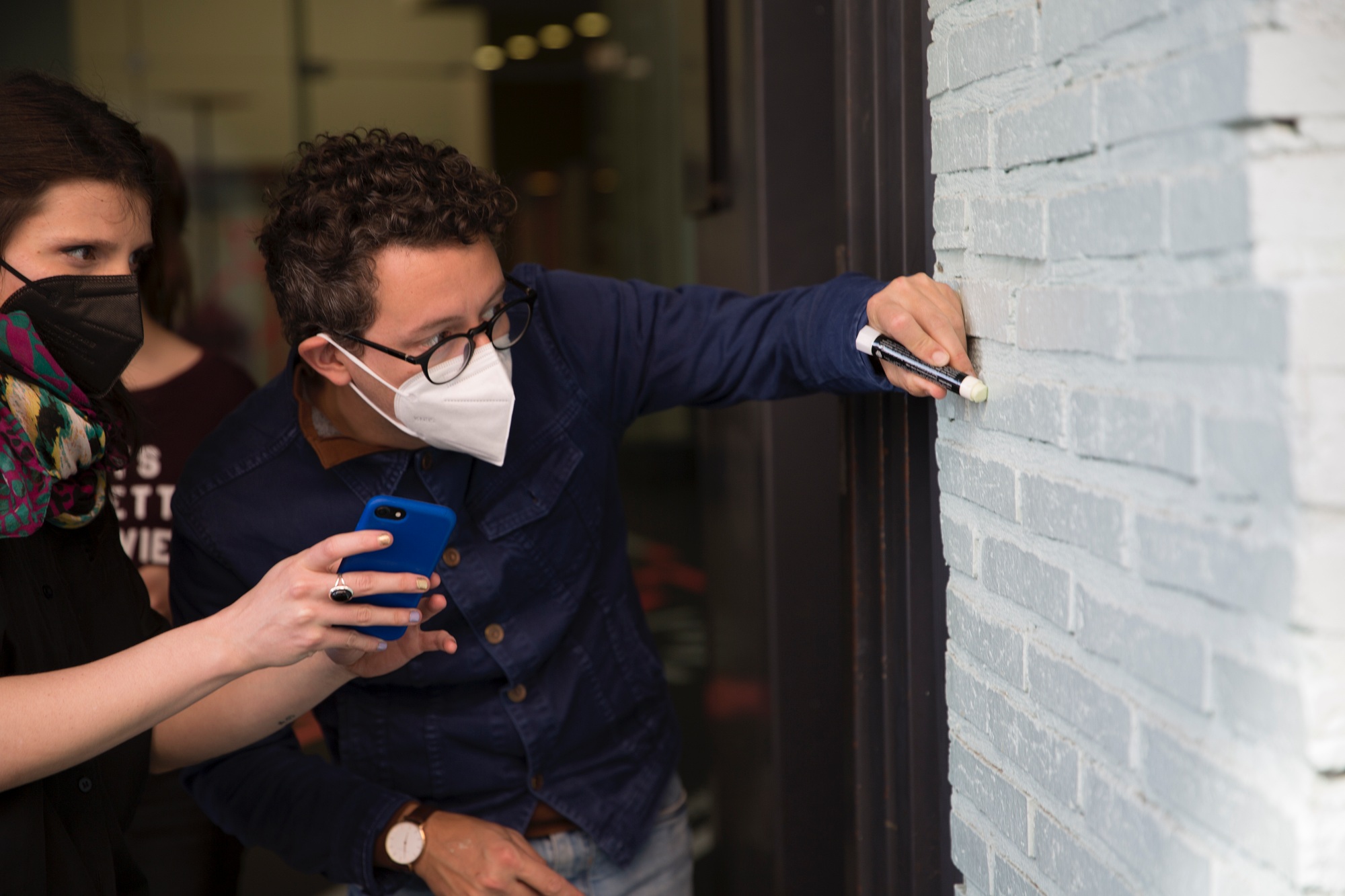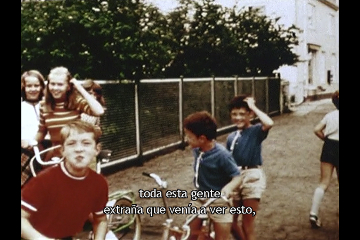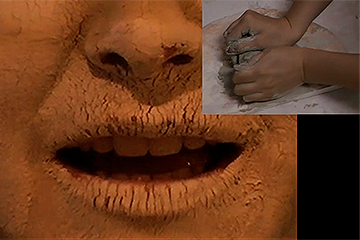Can silence be fun? In this one-session school workshop Nilo Gallego and Magda Labarga will explore the possibilities of listening and of noise, as well as their connections with the urban space and life in society. What does listening to the city mean? Is it possible to listen in the middle of chaos? What different kinds of silence are there? How many different kinds can we listen to? In this third edition of the workshop we will be looking to expand the limits imposed up until now in the practice and will push back new boundaries for silence. Operating in parallel to The Triangle project, the Noise and the City workshop will partake in the reflections that arise and will establish a dialogue on the various forms that silence can adopt in the school space.
The session is divided into different stations or stops. First of all, everything is amplified in the Listening Room. Have you paid attention to your clothes rubbing together? Have you listened to the hairs on your head as they hit off one another? Or to the symphony produced by the zip on your coat? In the Sonic Viewing Room we will take a look at the city and experiment with its sounds and use them to compose the rhythm of passers-by walking on the streets. In the Noise Room, after listening to the soundtrack of our everyday lives, the Noise and the City orchestra will rehearse for a street parade. In it, other voices that emit new slogans, accompanied by pots and pans and whistles, will propose other rhythms for our neighbourhoods.
This activity is aimed at groups of primary school children and their teachers, who will have an opportunity to take part in an action in which communication exists, but in an alternative way, and where attention is based on logics other than conventional ones: What would happen if adults didn’t ask us to be quiet for the next two hours?
This activity is aimed at groups of primary school children and their teachers, who will have an opportunity to take part in an action in which communication exists, but in an alternative way, and where attention is based on logics other than conventional ones: What would happen if adults didn’t ask us to be quiet for the next two hours?
